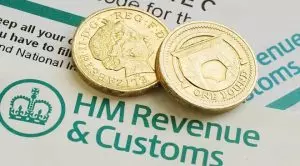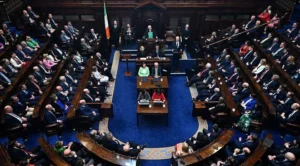 Currently, UK lotteries are very popular among local residents, some of whom take part in National Lottery and EuroMillions draws on a regular basis. However, are lottery winnings, including jackpot winnings, being taxed in the UK?
Currently, UK lotteries are very popular among local residents, some of whom take part in National Lottery and EuroMillions draws on a regular basis. However, are lottery winnings, including jackpot winnings, being taxed in the UK?
The non-ministerial department of the UK Government Her Majesty’s Revenue and Customs (HMRC) does not regard lottery winnings as an income, which is the reason why the generated lottery winnings are not taxable up to date. However, lottery players in the UK need to bear in mind that they may face tax implications once they have banked their earnings.
HM Revenue and Customs department (HMRC) has published a list that states which parts of the UK citizens income are taxable and which are tax-free. For the time being, British residents do not pay tax on premium bond and National Lottery wins.
Taxable and Non-Taxable Assets
 The so-called Income Tax is a tax imposed on UK residents’ income, but not all types of income are taxable to date.
The so-called Income Tax is a tax imposed on UK residents’ income, but not all types of income are taxable to date.
Under the UK legislation provisions, local citizens owe to pay tax on the money they earn from employment. The same applies to residents who make profit as self-employed persons. Some state benefits are also taxable, as well as most pensions (state pensions, retirement annuities, company and personal pensions). UK residents’ rental income is also being taxed, as well as their income from a trust and the benefits they get from their job.
On the other hand, British residents are not taxed for things such as some state benefits, premium bond or National Lottery winnings, the fist £5,000 of company shares dividends, interest on savings under the residents’ savings allowance, income from tax-exempt accounts and rent from a lodger in a resident’s home that is below the allowed limit.
EuroMillions Prizes and Taxes
 Up to date, EuroMillions is one of the largest lotteries that are being held not only on the territory of the UK, but also in Europe. The lottery is currently played across nine European countries, including the UK, Ireland, France, Spain, Portugal, Belgium, Austria, Luxembourg and Switzerland.
Up to date, EuroMillions is one of the largest lotteries that are being held not only on the territory of the UK, but also in Europe. The lottery is currently played across nine European countries, including the UK, Ireland, France, Spain, Portugal, Belgium, Austria, Luxembourg and Switzerland.
EuroMillions draws are very popular among British residents not only because of the large prizes granted, but also because of the fact that winnings, including jackpots, are not taxable for the time being. In fact, only three of the nine participating countries in the EuroMillions lottery, including Portugal, Spain and Switzerland, impose taxes on the winners’ prizes. UK players who generate a winning from EuroMillions draws are not required to pay any taxes.
In comparison, Portuguese EuroMillions players who win an amount above €5,000 are subjected to a 20% tax on their winnings, Spanish ticket holders who generate an EuroMillions win owe a 20% tax on winnings which exceed €2,500, while Swiss players are charged with a 35% tax on prizes larger than CHF1,000.
Lottery Winnings Taxes Owed by Dual Citizens
 As mentioned above, HM Revenue and Customs department does not classify lottery winnings as taxable under current UK legislation. However, things are different when it comes to duel citizenship, especially a UK/US one, and taxes imposed on lottery winnings.
As mentioned above, HM Revenue and Customs department does not classify lottery winnings as taxable under current UK legislation. However, things are different when it comes to duel citizenship, especially a UK/US one, and taxes imposed on lottery winnings.
Lottery players who have both UK and US citizenship must be aware of the fact that they may not owe any taxes on their lottery winnings in the UK, but as US citizens they are taxed on their worldwide income, no matter of their residence or citizenship status in another country. In other words, lottery winnings are not taxable on the territory of the UK, but taxes are to still be imposed under US laws.
US citizens will be forced to pay tax on their lottery winnings to the Internal Revenue Services (IRS) of the US Federal Government, no matter where they live and in which country their winning has been generated.
Lottery Winnings and Gift/Inheritance Tax
 The cash won is to be considered part of the player’s estate and will be subject to a 40% inheritance tax (IHT) in case that their estate’s value surpasses the current threshold of £325,000. Also, money gifted to other people such as family members or friends are still concerned as part of the individual’s estate, so the recipients of the gift would be forced to pay tax on the amount they received, including lottery winnings, in case that their contributor was to die within seven years of giving them the money.
The cash won is to be considered part of the player’s estate and will be subject to a 40% inheritance tax (IHT) in case that their estate’s value surpasses the current threshold of £325,000. Also, money gifted to other people such as family members or friends are still concerned as part of the individual’s estate, so the recipients of the gift would be forced to pay tax on the amount they received, including lottery winnings, in case that their contributor was to die within seven years of giving them the money.
Currently, any win that boosts the estate’s value above the £325,000 threshold for individuals and above the £650,000 threshold for couples, is subjected to an inheritance tax of up to 40%.
Giving away millions as gift will not prevent such players from paying the inheritance tax, as they will be taxed on a sliding inheritance tax scale in case they die within seven years of gifting any cash to family members and friends. Under current UK laws, when someone dies, the value of their overall assets, including any lottery winnings, is added up and compared to the IHT threshold which is currently set at the amount of £325,000.
The executors of the deceased are required to fill in a form which includes information about money and other assets given as gifts to the family members and friends of the deceased in the previous seven years. The so-called inheritance tax is imposed on such gifts if they would have been taxable in case they had not been given away.
- Author


